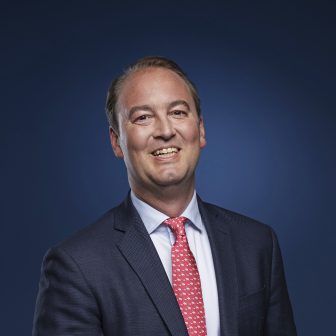
Winkworth has welcomed what it says has been a brighter start to the year as commuters and international buyers return to London.
Dominic Agace, chief executive of Winkworth, told the latest episode of The Property Exchange, Winkworth’s podcast, that the the first two weeks of January demonstrates that the residential property market is in a very different place from the last quarter.
He commented: “Internationally, China has opened up and there is a huge surge of interest. China has always been a big buyer of London property and investment in London. They can now travel and for the wealthy, pick up global assets. This is good news for central London which was a bit behind other markets as travel was locked down for longer.
“In the first week, we saw the number of applicants at the same level as 2019, which is the last normal year. The mortgage market has affected people’s affordability levels but we’re seeing those costs reduce to below 5%, a more long-term position. I think we will see interest rates peaking this year. It feels as though we are on the downward slope and we are now reducing to a more long-term norm. We have stepped away from the 6.5 % level, which was stretching the stress tests that came in 2014. We’ll be seeing a more positive year than perhaps some have anticipated.
“In terms of the country markets, it was a bit of an artificial period – there was such conviction that things had really changed forever and that people will never go back to the office. We look at the tube and other transport and they are busy with people going back to work. The surge to the country has abated and we’re moving to a more normalised situation. Prices have grown far faster in some of these markets than they have in London and I think some of that will come off but you’ll still be well above where we were before the pandemic. It just feels that we’re finally moving on from a traumatic event and the property market is settling to a sort of long-term trend.
“For landlords, buying for income in their retirement, you can get some fantastic returns out of London, including student rentals accommodation in university towns. The yields are far higher but your capital growth traditionally has been lower. For people who hold property in London, it continues to compete as a global hub.”

Adam Stackhouse, head of developments and commercial investments, reflected on the rise of boutique residential schemes on former commercial sites in central London.
He told the podcast: “We have a pipeline of developments sites this year where small to medium sized businesses in zones one to four don’t need the workspace they’ve traditionally held. I have a training academy in West London which has moved most of their courses online and are reducing their staff in occupation from 40 headcount to 10.
“Businesses who own their buildings are talking to us and engaging architects – with a number of very interesting schemes about to go into planning for around 25 homes or under in some gorgeous, very central London locations. As a result, there will be slightly more supply of stock in central London. Where local authorities had, in the past, really reinforced the need to retain some commercial use on site, we are finding that councils, particularly Hammersmith and Fulham, at the moment are loosening up in terms of their expectations.
“The sites tend not to be on the high street but in quieter backwaters. Councils are much happier to look at a 100 percent residential scheme, with appropriate mix of affordable plus a community payment from the developer to enhance road and traffic arrangements or possibly invest in primary schools or much needed doctors’ surgeries.”
Adam Stackhouse also highlighted the return of international buyers and investors. He added: “The weakness of sterling is certainly maintaining demand at a constant. Just under 80 per cent of our recent enquiries are from dollar denominated buyers from countries all over the world where they have their assets held in dollars. These are, in many cases, second or third generation investors whose families have invested in the UK real estate market when sterling is weak. They step forward when they see that the pound is low because they do believe in the long-term prospects of London property.”
To tune into the latest episode of The Property Exchange, presented by commentator and broadcaster Anne Ashworth, listen on Apple Podcasts.


Comments are closed.